List of Masters in College

|
|
|
Master in College is the title of the housemaster of College, which is the oldest boarding house at Eton College and reserved for Eton's seventy King's Scholars.
King's Scholars (Collegers) attend Eton on scholarships provided under the original foundation by King Henry VI in 1440 and awarded by examination each year. The school originally consisted of 70 scholars (half of the first intake had previously been educated at Winchester College) together with a small number of Commensals.
The boarding house in which Collegers live is in the central area of the school off School Yard, where both Eton College Chapel and Lupton's Tower are situated. It includes New Buildings and Chamber. Chamber, the older section, includes rooms which look out onto School Yard, while New Buildings is on the reverse side and contains the majority of the boys' living spaces.
The position of Master in College dates from 1846 when the New Buildings were finished, Long Chamber was divided up, and other long-overdue reforms took place. Prior to that the Head Master had been directly responsible for the Scholars. [1] "Mr C J Abraham [gave] up his overflowing boarding-house to take up the novel position of 'Assistant-Master in College' [sic]." [2]

|
|
|
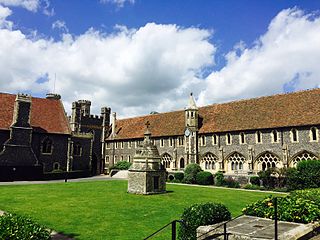
The King's School is a public school in Canterbury, Kent, England. It is a member of the Headmasters' and Headmistresses' Conference and the Eton Group. It is Britain's oldest public school; and is arguably the oldest continuously operating school in the world, since education on the Abbey and Cathedral grounds has been uninterrupted since AD 597.
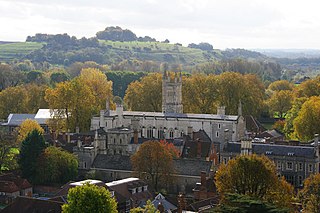
Winchester College is an English public school with some provision for day attendees, in Winchester, Hampshire, England. It was founded by William of Wykeham in 1382 as a feeder school for New College, Oxford, and has existed in its present location ever since. It is the oldest of the nine schools considered by the Clarendon Commission. The school has begun a transition to become co-educational, and has accepted male and female day pupils from September 2022, having previously been a boys' boarding school for over 600 years.

Eton College is a public fee-charging and boarding secondary school for boys aged 13–18, in Eton, Berkshire, England. It has educated prime ministers, world leaders, Nobel laureates, Academy Award and BAFTA award-winning actors, and generations of the aristocracy, and has been referred to as "the nurse of England's statesmen". The school is the largest boarding school in England ahead of Millfield and Oundle. Eton charges up to £52,749 per year. It was the sixth most expensive Headmasters' and Headmistresses' Conference boarding school in the UK in 2013–14.
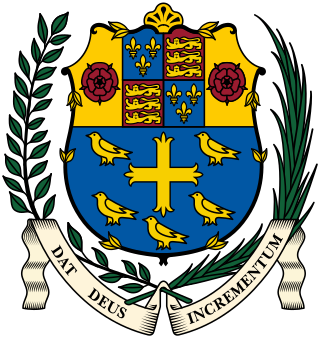
Westminster School is a public school in Westminster, London, England, in the precincts of Westminster Abbey. It descends from a charity school founded by Westminster Benedictines before the Norman Conquest, as documented by the Croyland Chronicle and a charter of King Offa. Continuous existence is clear from the early 14th century. Westminster was one of nine schools examined by the 1861 Clarendon Commission and reformed by the Public Schools Act 1868. The school motto, Dat Deus Incrementum, quotes 1 Corinthians 3:6: "I planted the seed... but God made it grow." The school owns playing fields and tennis courts in the centre of the 13-acre Vincent Square, along which Westminster Under School is also situated.
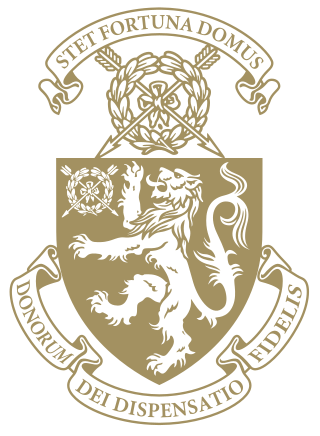
Harrow School is a public school in Harrow on the Hill, Greater London, England. The school was founded in 1572 by John Lyon, a local landowner and farmer, under a royal charter of Queen Elizabeth I.
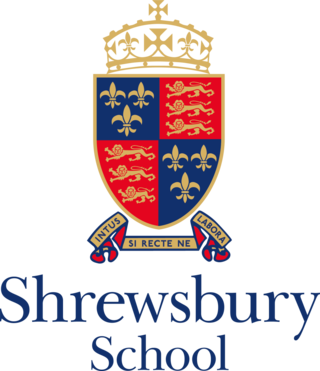
Shrewsbury School is a public school in Shrewsbury.

Clifton College is a public school in the city of Bristol in South West England, founded in 1862 and offering both boarding and day school for pupils aged 13–18. In its early years, unlike most contemporary public schools, it emphasised science rather than classics in the curriculum, and was less concerned with social elitism, for example by admitting day-boys on equal terms and providing a dedicated boarding house for Jewish boys, called Polack's House. Having linked its General Studies classes with Badminton School, it admitted girls to every year group in 1987, and was the first of the traditional boys' public schools to become fully coeducational. Polack's House closed in 2005 but a scholarship fund open to Jewish candidates still exists. Clifton College is one of the original 26 English public schools as defined by the Public Schools Yearbook of 1889.

Oundle School is a public school for pupils 11–18 situated in the market town of Oundle in Northamptonshire, England. The school has been governed by the Worshipful Company of Grocers of the City of London since its foundation by Sir William Laxton in 1556. The school's alumni – known as Old Oundelians – include entrepreneurs, scientists, politicians, military figures and sportspeople.

Tonbridge School is a public school in Tonbridge, Kent, England, founded in 1553 by Sir Andrew Judde. It is a member of the Eton Group and has close links with the Worshipful Company of Skinners, one of the oldest London livery companies.
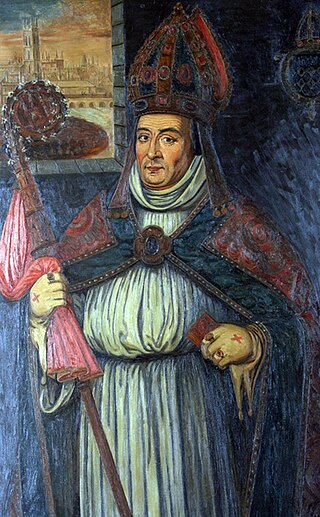
William Waynflete, born William Patten, was Headmaster of Winchester College (1429–1441), Provost of Eton College (1442–1447), Bishop of Winchester (1447–1486) and Lord Chancellor of England (1456–1460). He founded Magdalen College, Oxford, and three subsidiary schools, namely Magdalen College School in Oxford, Magdalen College School, Brackley in Northamptonshire and Wainfleet All Saints in Lincolnshire.
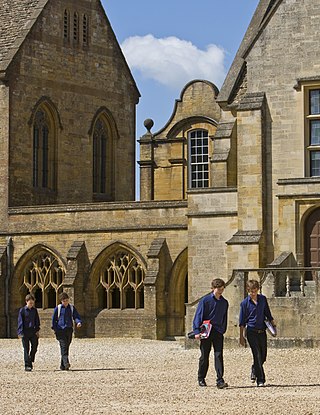
Sherborne School is a 13–18 boys public school and boarding school located beside Sherborne Abbey, in the parish of Sherborne, Dorset. The school has been in continuous operation on the same site for over 1,300 years. It was founded in 705 AD by St Aldhelm and, following the dissolution of the monasteries, re-founded in 1550 by Edward VI, making it one of the oldest schools in the United Kingdom. Sherborne is one of the twelve founding member public schools of the Headmasters' and Headmistresses' Conference in 1869 and is a member of the Eton Group and Boarding Schools Association.

The house system is a traditional feature of schools in the United Kingdom. The practice has since spread to Commonwealth countries. The school is divided into units called "houses" and each student is allocated to one house at the moment of enrollment. Houses may compete with one another at sports and maybe in other ways, thus providing a focus for group loyalty.

Bradfield College is a public boarding and day school for pupils aged 13–18 in Bradfield, Berkshire, England. It is noted for its open-air Greek theatre and its triennial Greek play.

St Edward's School is a public school in Oxford, England. It is known informally as 'Teddies'.

Carmel College was founded in 1948 as a British, Jewish boarding school for boys, modelled on British public schools. In later years it was, to some extent, co-educational, and there were a few non-Jewish day pupils. It closed down in 1997.
In education, a housemaster is a schoolmaster in charge of a boarding house, normally at a boarding school and especially at a public school. The housemaster is responsible for the supervision and care of boarders living in the house and typically lives on the premises. However, houses also exist in non-boarding schools, in which case the housemaster simply heads a house.
A King's Scholar is a foundation scholar of one of certain public schools. These include Eton College; The King's School, Canterbury; King's Ely; The King's School, Worcester; Durham School; and Westminster School, although at Westminster their name changes depending on whether the current monarch is male or female.

Anthony Chenevix-Trench was a British schoolteacher, classics scholar and alleged child sexual abuser. He was born in British India, educated at Shrewsbury School and Christ Church, Oxford, and served in the Second World War as an artillery officer with British Indian units in Malaya. Captured by the Japanese in Singapore, he was forced to work on the Burma Railway.

Charles Kegan Paul, usually known as Kegan Paul, was an English author, publisher and former Anglican cleric. He began his adult life as a priest of the Church of England and held various ministry positions for more than 20 years. His religious orientation moved from the orthodoxy of the Church of England to first Agnosticism, then Positivism and finally Roman Catholicism.

The 1797 Rugby School Rebellion was a mutiny of the boys at Rugby School after the headmaster, Dr Henry Ingles, demanded that boys from the fifth and sixth forms should pay for the repair of a local tradesman's windows after they had been smashed by the school's pupils. The rebellion saw many of the school windows broken and its furniture burnt before the boys withdrew to an island on the school grounds. A local justice of the peace read the Riot Act, while soldiers crossed the island's moat from the rear and took the boys prisoner.